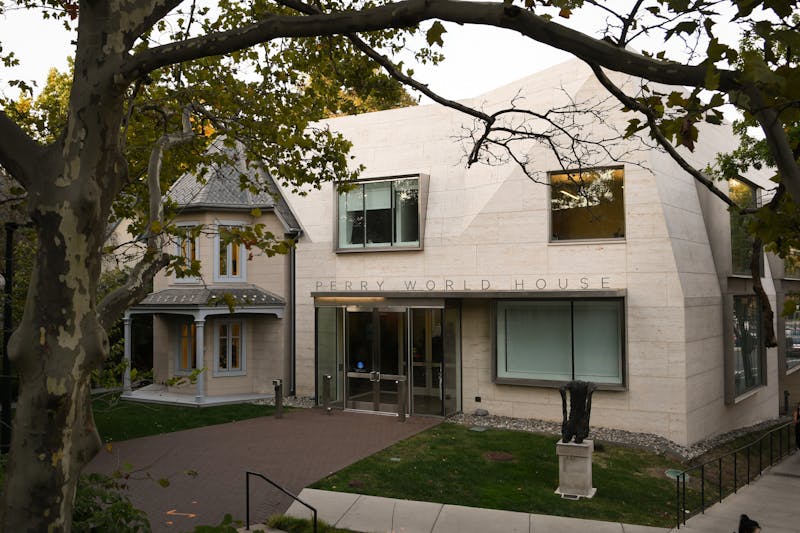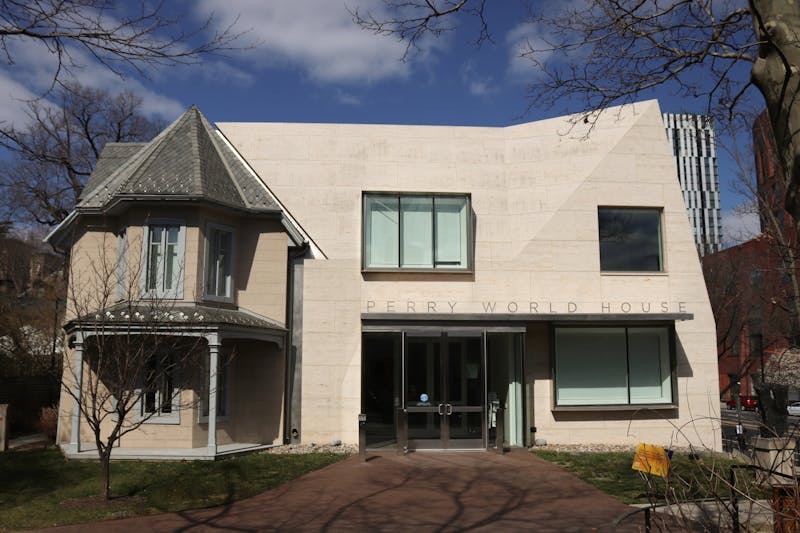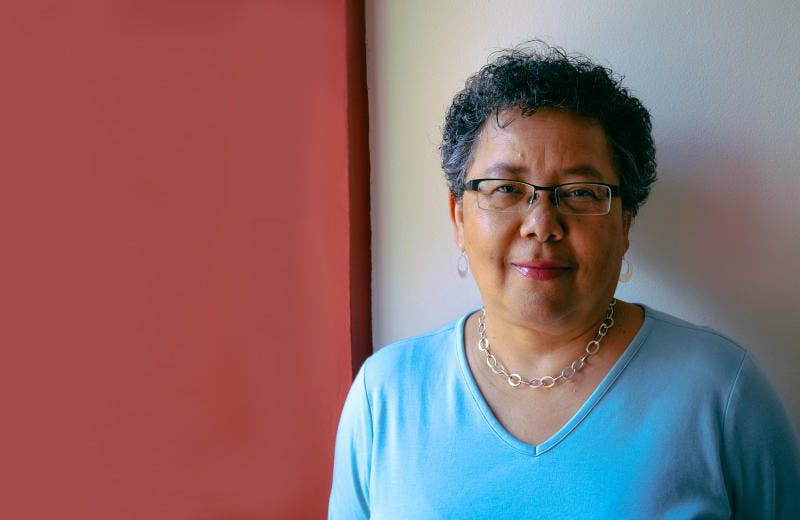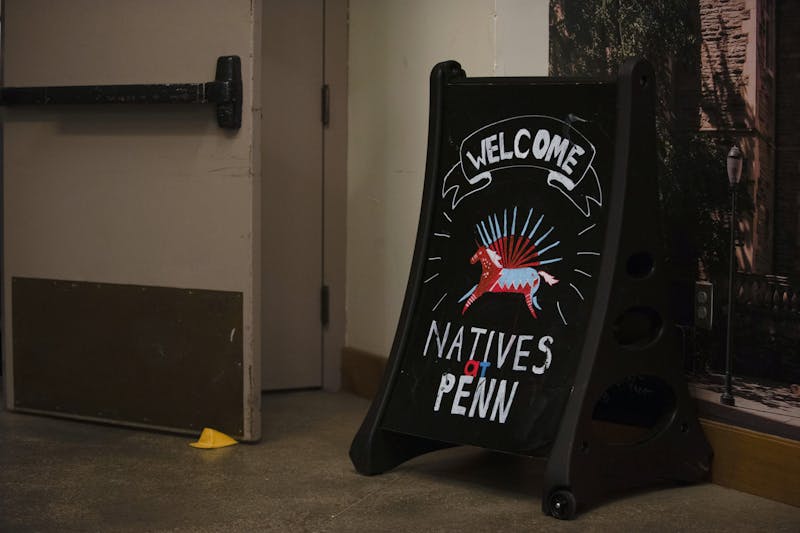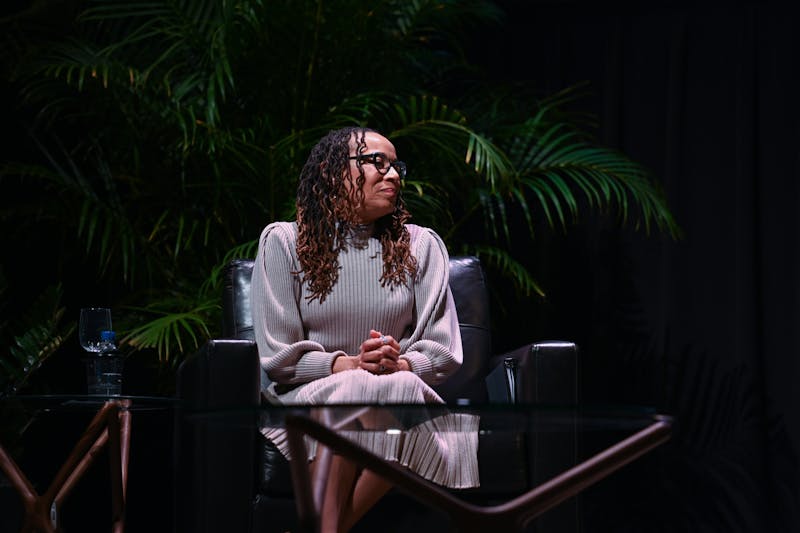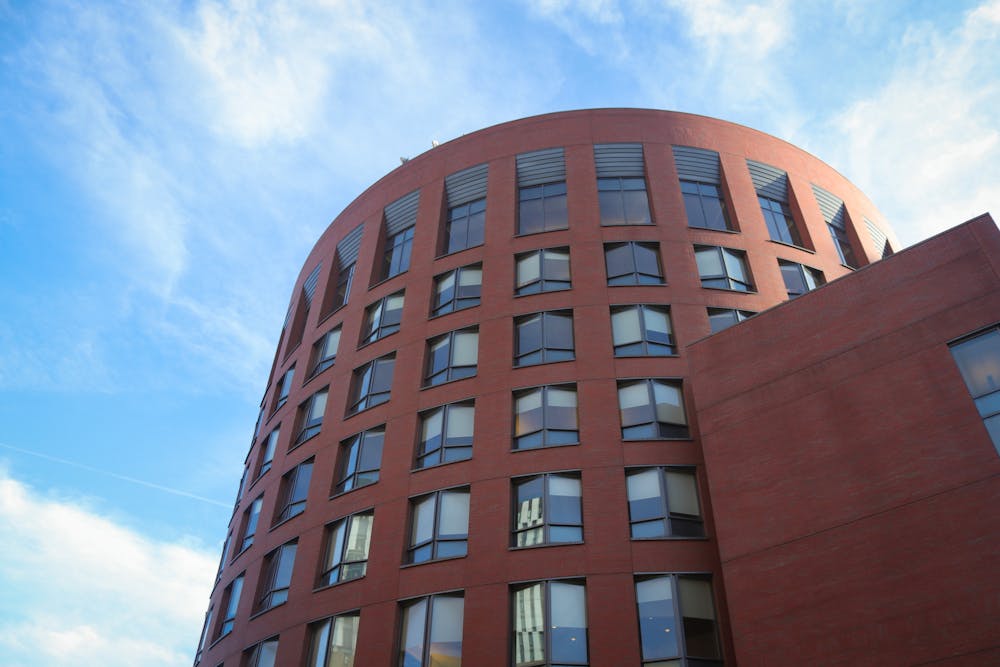
Nobel Prize Laureate Leymah Gbowee delivered the fourth annual Distinguished Lecture in African Studies, titled “Peace and Security in Africa,” at Huntsman Hall on Oct. 21.
Penn’s Center for Africana Studies hosted the lecture in partnership with the Lauder Institute, the Wharton School, Penn School of Social Policy & Practice, and Gender, Sexuality and Women’s Studies at Penn. Gbowee, widely known for her leadership in the Liberian peace movement and her advocacy for women’s roles in conflict resolution, spoke about her experiences and the vital role women play in peacebuilding efforts across Africa.
Around 50 attendees were present, including both undergraduate and graduate students as well as faculty.
Gbowee received the Nobel Prize in 2011 for her nonviolent efforts to advance peace and women’s rights. In her speech, she highlighted the often-overlooked role of women in African political history, especially in her home country of Liberia.
“Though men have traditionally held political power, it’s the women who shape the communities,” she said. “When you look closely at Liberia’s history, you’ll find many indigenous chiefs were women, and even male leaders often sought their guidance in making tough decisions.”
As an indigenous Liberian and one of five daughters, Gbowee said that she has always been encouraged to stand up for herself and for women. Growing up, her grandmother encouraged her and her sisters to never back down from a fight, regardless of their opponent’s gender.
She said that she seeks to challenge stereotypes of African women.
“A lot of people seem to think that the African woman story is one of sagging breasts, begging bowl, and thousands of babies hanging on you,” she told The Daily Pennsylvanian. “And whilst that would be the picture that has been created over the years across the world, that is not the reality of the African woman.”
In her speech, Gbowee also emphasized the importance of the role of women in peacebuilding.
“All across Africa, even in the midst of the deepest and darkest civil war, women are still proving that we can hold communities together,” she said. “We can deliver a form of peace by our people, and we are doing what we can do. So any society that must move forward must have women involved.”
President of the Africana Undergraduate Advisory Board and College junior Nancy Mvogo Mbala connected Gbowee’s insights to her academic studies.
“The lecture gave me a more comprehensive understanding of the political economy of Africa, something I’m studying in a class called ‘Oil to Diamonds: The Political Economy of Natural Resources in Africa,’” Mbala said.
She added the talk reinforced her understanding of the role of political circumstances that have shaped Africa into what it is today.
Senior Staff Director at the Center for Africana Studies Kelly Harris said that he first encountered Gbowee’s work through the documentary “Pray the Devil Back to Hell,” which highlighted her leadership in the Liberian women’s movement.
“She trusted herself,” he said. “She held a conviction in what she believed, and that was enough … I think that’s what students should take away from this. If we respect each other enough to sit down, talk, and acknowledge that none of us have all the answers, we can still figure things out together.”
He also called Gbowee “down to earth” and commended her ability to put tough concepts and hard issues in plain language.
“I’m very privileged and blessed to be able to go into these spaces, to learn, use my voice to advocate, but then also transfer some of the little knowledge that I have,” Gbowee told the DP.
The Daily Pennsylvanian is an independent, student-run newspaper. Please consider making a donation to support the coverage that shapes the University. Your generosity ensures a future of strong journalism at Penn.
Donate







